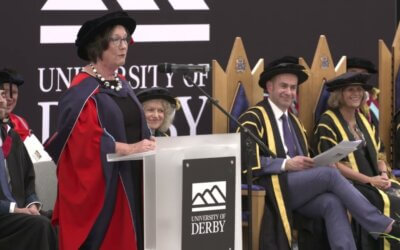On December 13, 2022, the House of Commons held a debate on aortic dissection patient pathways and research funding. The debate was initiated by Pauline Latham MP, who highlighted the urgent need for more research funding and better patient pathways to improve outcomes for those suffering from aortic dissection.
During the debate, Pauline Latham MP referred to a briefing paper by the House of Commons Library, which highlighted the high mortality rate associated with aortic dissection, particularly for those who are not diagnosed promptly. The briefing paper also highlighted the need for improved patient pathways, particularly for those who are at higher risk of aortic dissection due to genetic factors.
Several MPs shared personal stories of constituents who had been affected by aortic dissection and expressed their support for increased research funding and better patient pathways. Several MPs also highlighted the need for greater public awareness of aortic dissection, and the need for improved education for healthcare professionals.
One of the key issues discussed during the debate was the need for more research funding to better understand the causes of aortic dissection, and to develop new treatments and interventions. Pauline Latham MP highlighted the need for a coordinated approach to research funding, and called for the establishment of a national research fund to support research into aortic dissection.
Several MPs echoed this call for increased research funding, and highlighted the potential benefits that could be achieved through greater investment in research. For example, Alex Sobel MP stated that “with more research, we can develop better treatments and interventions, and ultimately save more lives”.
Another key issue discussed during the debate was the need for better patient pathways for those suffering from aortic dissection. Pauline Latham MP highlighted the need for improved screening programmes to identify those at higher risk of aortic dissection, and called for better coordination between healthcare providers to ensure that patients receive prompt and effective treatment.
Several MPs supported this call for improved patient pathways, and highlighted the need for greater investment in healthcare infrastructure to support better patient outcomes. Rachael Maskell MP stated that “we need to invest in our NHS to ensure that patients receive the care they need, when they need it”.
Overall, the debate on aortic dissection patient pathways and research funding highlighted the urgent need for greater investment in research and healthcare infrastructure to improve outcomes for those suffering from aortic dissection. The call for a coordinated approach to research funding, and the establishment of a national research fund, was particularly notable.
The debate also highlighted the need for greater public awareness of aortic dissection, and the need for improved education for healthcare professionals. By working together to raise awareness of aortic dissection and improve patient pathways, we can improve outcomes for those affected by this devastating condition.
Since the initiation of our 2015 petition, the charity has consistently pushed for greater recognition and understanding of aortic dissection. This petition has been instrumental in prompting the government to investigate the inconsistencies and gaps in diagnosis, treatment, and aftercare of the condition. Furthermore, this advocacy directly influenced Pauline Latham MP’s decision to champion the cause in the House of Commons, escalating the need for increased research funding and streamlined patient pathways. The progress seen in the 2022 debate can be traced back to the collective efforts begun in 2015. As a direct outcome of the petition, there’s now an increased focus on research, healthcare infrastructure, and public awareness – vital components to enhance patient outcomes for those affected by aortic dissection.
References:
House of Commons Library. (2022). Aortic Dissection: Patient Pathways and Research Funding. Research Briefing CDP-2022-0239.




